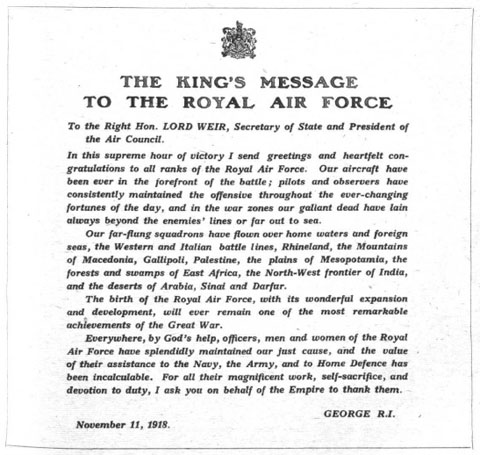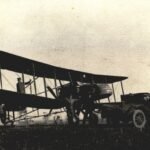In May 1909, the three major organisations promoting aviation in Britain, the Aeronautical Society, the Aero Club, and the newly-formed Aerial League, announced that they would henceforth coordinate their efforts. The Aerial League would be recognised as ‘the paramount body for patriotic movements and for education’, the Aeronautical Society ‘the paramount scientific authority on aeronautical matters’, and the Aero Club ‘the paramount body in all matters of sport, and the development of the art of aeronautics’ (Flight, 8 May 1909, 258.) These are important organisations in the history of British aviation. I’ve visited the Aeronautical Society (now the Royal Aeronautical Society), to use their library (now part of the National Aerospace Library) and I’ve visited the Aerial League (now the Air League), to examine its archives, but I’ve never been to the Aero Club (now the Royal Aero Club), to see what it has. And now I don’t have to; or at least soon I won’t have to. (Though, actually, most of the material is in the RAF Museum London’s collections, which I have visited for other reasons.)
Andrew Dawrant has left a comment on my post about Claude Grahame-White which brought to my attention the existence of the Royal Aero Club Collection. The Collection exists to preserve and promote the Aero Club’s historical material, whether generated by itself or donated to it, including photographs and postcards, fine art, and trophies and other artefacts. (The Aviators’ Certificates, i.e. pilot’s licenses, which were awarded by the Aero Club are available through Ancestry, alas not for free.) But what really caught my eye is the digitisation programme. In the future this will include the Aero Club’s papers (an index is already available). Moreover, the minutes of the Aero Club’s executive committee from 1901 (i.e. the beginning) to 1956 have been scanned, OCRed and put online. Admittedly (as I know from looking at the equivalent Air League records) it is in the nature of minutes that they generally record only resolutions proposed, resolutions voted, letters read at the meeting, and not the cut and thrust of the discussion and debate. And as agendas were set in advance (and members no doubt wanted to get off home), they are often oddly silent on the great matters of the day, even when they would seem to be of direct relevance. But even so there is a tremendous amount of information to be gleaned from them, even just on a basic level of who knew who and did what when.
This is a great resource and I thank the Royal Aero Club for making it available and accessible to the public free of charge.
![]() This work is licensed under a Creative Commons Attribution-NonCommercial-NoDerivatives 4.0 International License.
Permissions beyond the scope of this license may be available at http://airminded.org/copyright/.
This work is licensed under a Creative Commons Attribution-NonCommercial-NoDerivatives 4.0 International License.
Permissions beyond the scope of this license may be available at http://airminded.org/copyright/.



